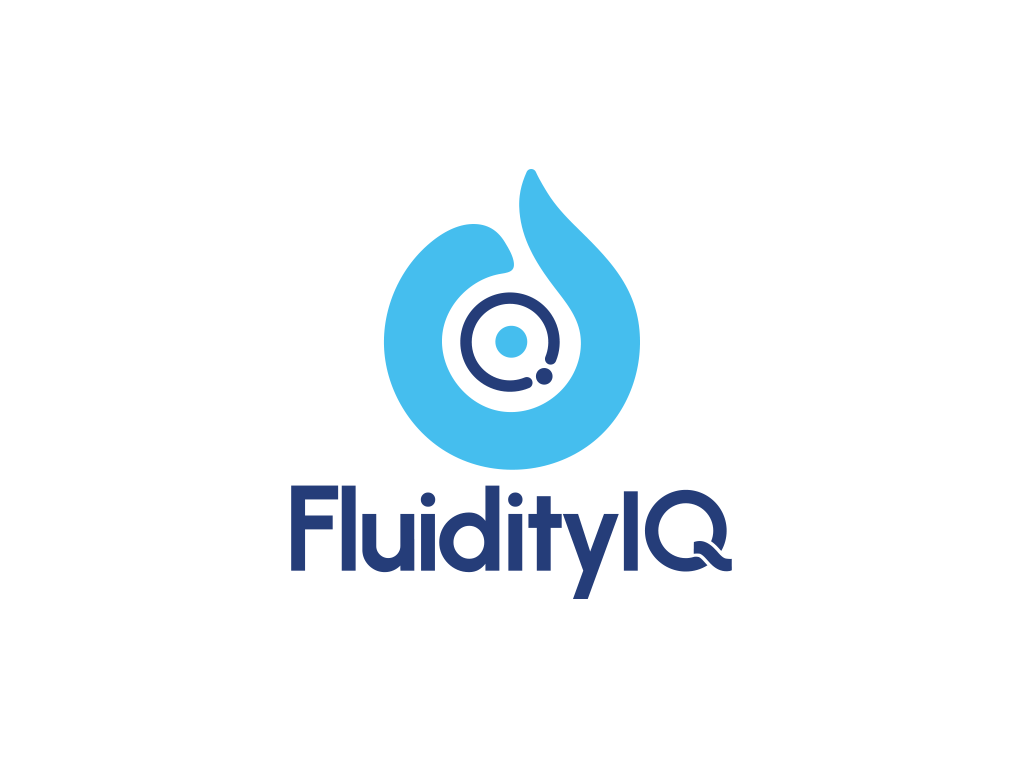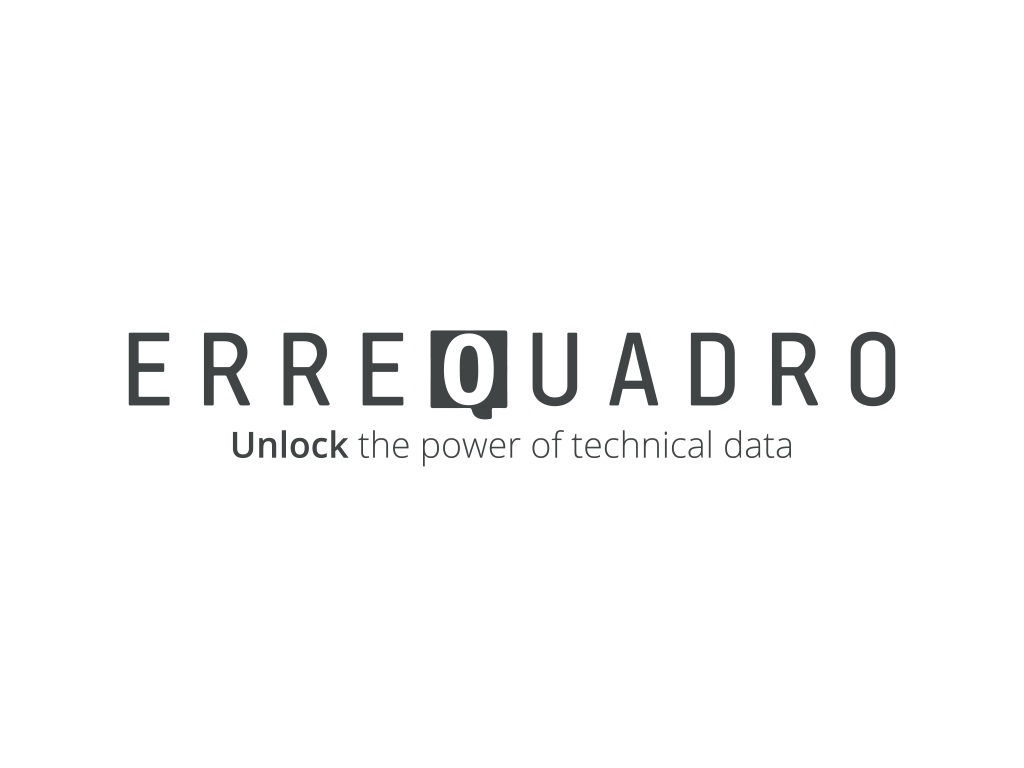When it comes to risk aversion, IP practitioners are up there with bankers, doctors, and insurance professionals, which isn’t exactly surprising when you consider that failure to safeguard a company’s intellectual assets can cost millions of dollars and jeopardize a valuable market position. As such, igniting change among such professionals is no easy task. They’re used to the myriad of systems needed to document and track a company’s precious intangible assets.
RightHub, a London-based company building an integrated infrastructure for everything IP, is trying to transform the way professionals manage the process of recording and protecting intangibles. In creating this set-up, the RightHub team has drawn inspiration from the likes of LinkedIn and eBay where a sense of community and the opportunity to transact in that community make doing business a whole lot smoother and speedier. They’re also incorporating AI (including the generative form of it) to make everything more effortless and efficient. But AI and risk aversion don’t always go hand-in-hand at this nascent stage in the technology. So RightHub takes encouragement from the mass adoption of cloud computing in recent years.
Patent insider
Who: Stephen Carter and Christian Hafner
Innovation cred: Head of Data and Operations for RightHub, 20+ years IP management systems expertise (Carter); Product Manager at RightHub AI, European Patent Attorney (Hafner)
Favorite inventions: They can’t choose just one! The transistor (US-2524035-A), filed in 1948 and granted in 1950, which revolutionized electronics and paved the way for modern computing (including smartphones). This packet switching patent (US-4438511-A), which laid the groundwork for the Internet. And this one for the three-point seatbelt (US-3043625-A) invented by Volvo safety engineer Nils Bohlin. Now standard in vehicles, the invention is credited with saving countless lives.
Most promising patent: This invention for advances in data provisioning to help with data mapping and ingestion (US-20230267346-A1). Microsoft applied for the patent in 2023; its application is still pending. The innovation gives an administrator more control over managing and organizing data on a platform.
“It took one pandemic to suddenly get people to consider the benefits of remote working and cloud-based systems as opposed to requiring people to work in the office, accessing systems deployed on servers inside a server room in the same building.”
IFI CLAIMS caught up with Stephen Carter and his colleague Christian Hafner (who manages the AI products for RightHub) for a roundtable discussion that included the importance of solving the fragmentation problem in overseeing IP, how RightHub is building an IP marketplace and community, how the company is incorporating the aforementioned AI into its platform, and why RightHub decided to go with IFI patent data for its platform. The interview has been edited for clarity and length.
IFI CLAIMS: Tell us about your backgrounds and how you ended up in the patent business.
Carter: I studied at Manchester University in the U.K. I did two degrees. The first one was in town and country planning, followed by a postgraduate degree in planning law. Post graduation, I worked in a number of accounting and software roles for a number of U.K.-based PLCs. I was recruited into intellectual property in early 2003 where I have spent the last 20 plus years of my career—building IP products, support services, professional services, project management, and global support functions for products. The company I worked for was very acquisitive, buying multiple IP portfolio management systems. I joined through an early acquisition of an IP management system provider. The company soon followed that with several more acquisitions of software products, and I ended up looking after the technology and product side of portfolio management systems. That’s where I met RightHub CEO Toni Nijm. Later, I moved on and joined RightHub. Currently I’m head of data and operations for the organization, which means I make sure the right things get done and in a timely manner.
Hafner: I’m a civil engineer from Switzerland, but after university, I went to live in China for more than two years and worked for a big Swiss construction chemicals company. They do business all over the globe. When you worked in China at that time, you were confronted with all kinds of problems with intellectual property—you would see known brands, except they looked different, which means most likely they were not the real stuff. That experience sparked my interest in intellectual property. At the same time, my father had a friend who was a patent attorney. I thought, “What’s more interesting than learning about new technology?” The law and all the details that go into the work of a patent attorney was never something that I was super excited about; it just came with the job, and I had to learn it. But protecting innovation was something that really interested me. So, I went back to Switzerland and started to train to become a European Patent Attorney. I passed the EQE exam in 2012 and worked in private practice ever since. Private practice is more versatile than industry.
Then I founded a company called swiPr that provided services at reasonable pricing to small and medium-sized enterprises. I met Toni Nijm and he offered me the opportunity to work with AI and IP, and I couldn’t say no, so we integrated swiPr into RightHub. I think it’s going to impact lawyers and patent attorneys more than they think in the coming years.
We effectively want to become the operating system that underpins substantive change within the IP industry. We want to be an open platform, allowing suppliers and law firms to sell through our marketplace.
IFI CLAIMS: What is the story of RightHub?
Carter: RightHub was founded four years ago, starting with the work that our co-founder and Chief Product Officer Jon-James Kirtland was doing in forecasting. Toni joined six months later and expanded the vision of where the company could go. One of the key areas we try to resolve within the IP industry is fragmentation. You have many portfolio management systems and many providers, technologies, and applications. So patent and trademark practitioners will likely use multiple different systems each day to do their jobs. Anything from email, spreadsheets, and databases to their portfolio management systems. If it’s a law firm, people will be working in their own system, and potentially, they will have to double docket information into overseas agents’ systems as well as the corporation’s systems. Then you’ve got all the other applications in the law industry around capturing time, work in progress, being able to generate bills, and marketing activity. The goal at RightHub is to bring it all together in one place under three pillars: the community, the marketplace, and portfolio management.
Hafner: Yes, the general vision of RightHub is to be a one-stop shop. If you are a customer, you don’t need to buy separate services. If you’re a law firm today, they usually buy some docketing system. They buy some finance system. They buy some kind of AI translating tool or AI tool. But we have the vision to have that in the platform as a whole, enhanced with AI. You don’t need to buy all sorts of subscriptions that are expensive and complicated and don’t integrate. We integrate record and portfolio management with your agent network and your internal and external stakeholders. We provide a fully integrated experience from quote through to order, fulfillment, data entry and invoicing, all driven by AI and data in combination. Ease of use is our north star.
IFI CLAIMS: What is the community like?
Carter: The RightHub community is similar to LinkedIn. You have your network and chat functionality to keep in touch. The community is preloaded with thousands of attorneys in different spheres in patents, trademarks and designs, and you can connect with them. Additionally, we have the academy and law sections, where you can get the latest information on various types of intellectual property and the laws in different territories. Historically, access to those laws has been fragmented and expensive. The laws get passed within a jurisdiction, but then they’re interpreted differently by one firm versus another. So there is an area of common practice where they get normalized and standardized. We tried to make these all available openly through the community. We are working with agents in many global jurisdictions to maintain the laws for us, and then we distribute them out to the community.
Once people start to work within the community, they can contact people and start to transact with them. So, they can actually say, “I’m looking for somebody who can help with this type of work.” All of the agents who register through our platform can start to sell their services. We’re building a marketplace that will allow us to sell services through our suppliers but also for our suppliers to register directly and start to sell their services through our platform. It’s almost like an eBay marketplace approach.
IFI CLAIMS: What about the third pillar you referenced, Stephen?
Carter: Something that has always been problematic within the world of IP is where to keep your records. If you go back 20 years, there were a number of records systems. They then developed and grew into different geographies, and they became focused on either corporate or law firms for patents and/or trademarks. These multiple systems are hard to maintain, overly complicated, and wholly customized. And they’re normally expensive as a result. So we have built a portfolio management area within our platform. We want the end users to be able to search for their company name, find their patents and trademarks and ingest them into a sample portfolio where they can see what they’ve got, and easily see what’s wrong and what’s right. We’re trying to keep things simple and make a platform that benefits the small to medium-sized enterprises, whether they’re corporations or law firms.
Stats
7,000
Approximate number of attorneys loaded into the RightHub platform
IFI CLAIMS: What makes RightHub unique in the marketplace?
Carter: If you look at the IP industry, there are large providers in the space, often with multiple IP management systems, providing access to IP data and renewal services.
To answer your question though, there are other providers in the IP space that do similar things to us but they’re not doing it the same way. For instance, LinkedIn exists, and IP providers have a space on LinkedIn, but they don’t have their own community. They don’t provide an IP academy. They don’t provide open access to IP laws. They don’t offer a truly collaborative platform for IP practitioners. They don’t build in data and AI as a native aspect of their platforms. They don’t integrate the user experience in a way to solve the day-to-day issues for the customer. It is a lot more focused on selling more products and services than solving problems. It ends up creating a lot more complexity at the end of the day.
We invest in technology components that will allow the IP industry to move out of the dark ages and go forward into an age of open and seamless communication, where important communications between a client, an agent, and an overseas agent is smooth and straightforward. That rarely happens today.
We effectively want to become the operating system that underpins substantive change within the IP industry. We want to be an open platform, allowing suppliers and law firms to sell through our marketplace.
IFI CLAIMS: How do you use data to enhance your services?
Hafner: We’re exploring ways to enhance the data verification and augmentation process. There are multiple use cases for data. This includes portfolio onboarding, data verifications, search, watch, analytics, and much more. The use cases stretch across R&D, IP operations, and portfolio management.
IFI CLAIMS: You’ve simplified things for the onboarding of your clients. What sorts of things does that entail?
Carter: We download trademark record data from public databases allowing us to validate and augment portfolios that we load into our platform. Further down the road this could lead to entire portfolio onboardings, but for now it’s mainly trademarks. Patent records are more complicated and delayed by publication cycles, but we are working on that as well.
IFI CLAIMS: You mentioned AI, Christian. How is AI being incorporated into RightHub’s offerings?
Hafner: In general, the benefit of working with AI is that you can use natural language to solve tasks, sort list views, instruct AI to draft content, and so on. We leverage this in various locations within the RightHub platform. Another aspect is that we have the data, and having an AI attorney suite on top of that is very useful. The whole RightHub platform just comes with it. A very exciting thing is docketing automation and many other IP operations tasks where we really can leverage AI in multiple ways to automate data extraction, reporting, classification, mapping, and much more. The other thing we’re doing is translations. Let’s say you have a 20-page patent application. Using AI, you can translate it to Portuguese in the system and send it to your Portuguese or Brazilian attorney to read through and then file it. Also, if you get a Chinese document as prior art, you can easily translate it straight away and read through it. Besides, AI does not care what language a document is in, it can read all the major languages. A problem only shows up once you want to double check and read the document as an attorney. Then you need to be able to understand the language. AI translations can be a huge cost saving.
We’re also using AI to simplify documents and generate reports. Imagine getting a rejection. With our AI, you can prompt, “Please draft a report of this rejection to my client, and please focus on the important items.” Obviously, it is up to you how you form the prompt. Then you can add the report to the right case and send it out from the platform.
Carter: The dawn of generative AI and the arrival of Christian within the organization mirrored well with the start of us using the IFI CLAIMS data more proactively. We got to take the data, use the generative AI and implement solutions specifically for patent attorneys, and then extend that to a wider group, including paralegals, docketers, and so forth.
IFI CLAIMS: How are you developing RightHub’s portfolio management tools?
Carter: Eighteen months ago, we launched our IP management platform and since then we have increased the depth and breadth of functionality. We now have many customers using it as their portfolio management platform. It’s seamlessly integrated into our renewal service, providing easy renewals management within the platform. And we’re busy further extending the breadth and depth of functionality within the platform to adopt AI where it is beneficial. Some simple examples: reviewing a document, translating a document, getting AI input on citation analysis and being able to add the citations directly against cases. So, if you think about some of the basic concepts, particularly if you file in the U.S., you’ve got the duty of disclosure for IDS. Therefore, you have a duty to search, you have a duty to identify and collate prior art and obtain all non-American publications documents for your IDS submission. Generative AI is helpful with all these aspects. The generative AI helps formulate search strategies and identify the required references to be reviewed and cited. Then simple automation removes mundane tasks such as obtaining copies of the PDF publication documents prior to submission.
IFI CLAIMS: What is RightHub’s long-term vision for the IP management space?
Carter: If you look at where the market is right now for IP portfolio management, there are a number of incumbents. They have significant customer bases, but they also have a lot of legacy technologies to maintain. So, when you look at the portfolio management space in particular, RightHub is probably the only new full coverage portfolio management system that has arrived on the market in the last two decades. Because we’re building new tech from the ground up, we can bring these new technologies into play a lot easier as we do not have to deal with any legacy technology stacks when doing so.
Hafner: The challenge is to guide our users to the future because they are not used to working with modern tools. I think a lot about how we are going to work in the future and most likely it will be much more text and voice-based. You log in and you have your personal AI assistant available. Then you start asking: “What do I need to do today?” There is a lot of hype around AI right now. The hype will most likely decrease a little, but soon we will see there are already companies that have implemented it. RightHub is at the forefront of implementing AI within our platform, so you don’t have to go out and upload documents to something external like ChatGPT. This mitigates the risk of disclosing secret information to a provider that maybe your company doesn’t want you to disclose. You need the right type of AI, one that is safe and secure.
Carter: With any significant change in technology, you need a paradigm shift, but you also have an adoption curve. The IP industry is risk-averse. If you look at cloud services, for instance, we’ve been moving to the cloud for the best part of 20 years, but it took one pandemic to suddenly get people seriously considering the benefit of cloud-based systems. Being able to access information remotely as opposed to making sure people were working inside an office and accessing data on servers in the same building was an enormous change. That one pandemic helped that paradigm shift move forward in leaps and bounds. We’re at a similar crossroads with generative AI. People are asking, “Can I trust it? What’s the quality like?” There is going to be a natural progression through that adoption curve where people begin to trust it and then adopt it.
RightHub is at the forefront of implementing AI within our platform, so you don’t have to go out and upload documents to something external like ChatGPT. This mitigates the risk of disclosing secret information to a provider that maybe your company doesn’t want you to disclose. You need the right type of AI, one that is safe and secure.
IFI CLAIMS: Can you walk us through how a typical, say, pharmaceutical client would use your platform in the real world?
Carter: Sure, so you’ve got a great idea that you want to protect in the pharmaceutical industry. If you don’t yet have an attorney, through RightHub, you can connect with qualified attorneys providing the necessary level of support. And then you can chat with them and get advice. You can also do research on where you want to protect your idea. You might want to protect it in Brazil, but do you have agents there? Do you know what the local IP laws are there? Do you know what you need to do? These are the types of things you can find out about in RightHub because we have the community, the laws and regulations in territories, and we have the education articles guiding you on what the regulated practices are within those territories. Effectively, in one place, you can get all the answers you need to give you an idea of what you need to do next. And then, in the marketplace, you can actually go in and start the process of seeking protection.
In this pharma scenario, after reading information on RightHub, you might want to go for a U.S. patent, but then you might want to claim priority for that patent with a PCT, which gives you global coverage. Once you go into that kind of process, in RightHub’s marketplace, you can select territories, select existing agents, use your own agents, or ask us to find agents for you. If you’re new to the IP industry and don’t have a portfolio management system, you don’t have to go and find one because we will create that for you based on the cases you create. And from there, we can also prompt you and say, “This is what you need to do.” So, we’ll give you reminders on official actions you need to comply with. Once you’re successful with your grant, we can also help manage the renewals and ensure the timely annuity payments that are required to keep your patent protection in force. We also have a managed services team, so if you don’t have the resources to do the paralegal work, we can help here too. At RightHub we help you scale as your business grows.
IFI CLAIMS: What else is important to understand?
Carter: When you acquire another company, you acquire their portfolio and their system data. Their data might be out of date because they might not have maintained the data. You don’t get a pay status. You don’t get a current owner because it’s been reassigned. Effectively, all that information is also available through public record. By having this lake of public data in patents, trademarks, design, and litigation, we can actually reference that data set to say, “Your portfolio data is out of sync with regards to these records in these jurisdictions.” We can say, “This date is incorrect. Did you mean to enter this date?” In the IP industry, if you get a date wrong, you can lose your protection, and in certain jurisdictions, you cannot restore it. That can cost a business millions. So, we use the data to augment the portfolios that we ingest, and to ensure the information in the portfolio is kept current as new publications become available. That’s why we use IFI data for the patents, in order to help some of those processes.
IFI CLAIMS: What general patent strategy trends are you seeing?
Hafner: I think at least some companies use patents more for marketing nowadays than for actual protection. That’s something that’s underestimated. Some companies have a defensive strategy, meaning they want to protect their garden. Others have an aggressive strategy, meaning they want to go and attack competitors and drive license fees. But some companies want to have patents for marketing. AI will drive filings in the future for sure, it will become cheaper to file a patent application. But companies and inventors might become less emotional about it. They can drop patents easily and go on and file the next one instead.
IFI CLAIMS: Why does RightHub use IFI for its patent data source?
Carter: It’s available off the shelf. That’s the first thing. When we started RightHub, we evaluated whether to build our own data repository. In our discussions with IFI, we found the right level of coverage from both breadth and depth. The benefit of going with IFI is speed to deployment, the ability to have a lot of the normalization already done for us. To build your own data repository would take time and resources that could be better deployed on new technologies. That’s the reason we approached IFI for the data. If we can work with trusted suppliers like IFI CLAIMS, that’s a far quicker route to market for us than building our own patent data because that would take years to get to the required market position. By that time, other providers would have gone ahead, and we’d be playing catch up.
Also, IFI supplies a service to us rather than competing with us. Other data providers are indirectly in competition. IFI is very clear about what they will do and what they don’t do. It’s good to have a very open and collaborative relationship with access to the service off the shelf. If we start to develop new services, the required APIs are there.




